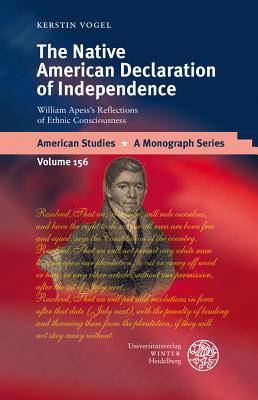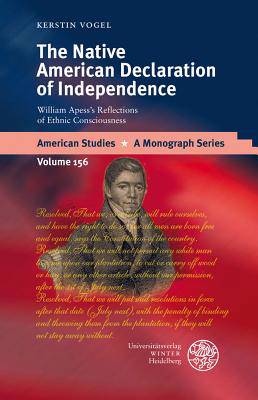
- Afhalen na 1 uur in een winkel met voorraad
- Gratis thuislevering in België vanaf € 30
- Ruim aanbod met 7 miljoen producten
- Afhalen na 1 uur in een winkel met voorraad
- Gratis thuislevering in België vanaf € 30
- Ruim aanbod met 7 miljoen producten
Zoeken
The Native American Declaration of Independence
William Apess's Reflections of Ethnic Consciousness
Kerstin Vogel
Hardcover | Engels
€ 91,95
+ 183 punten
Omschrijving
This study explores the connections between resistance, religion, and reform in the work of the Pequot writer and Methodist minister William Apess. Drawing on the idea of literary democracy, 'The Native American Declaration of Independence' shows how Apess tries to inscribe himself - and his fellow Native Americans - in the political landscape of the new nation. Apess's work as a Native American man of letters suggests literature as a mirror of national history and a social corrective long before the formulation of corresponding theories by modern critics. Located in the crucible of early nineteenth-century tensions, between civil liberty and communal responsibility, between Indian Removal and the American Renaissance, Apess's discourse provides a new context for the reframing of both U.S.-American democracy and literary realism with respect to the multicultural heritage of the American continent.
Specificaties
Betrokkenen
- Auteur(s):
- Uitgeverij:
Inhoud
- Aantal bladzijden:
- 320
- Taal:
- Engels
Eigenschappen
- Productcode (EAN):
- 9783825353650
- Verschijningsdatum:
- 6/01/2008
- Uitvoering:
- Hardcover
- Formaat:
- Genaaid
- Afmetingen:
- 142 mm x 213 mm
- Gewicht:
- 476 g

Alleen bij Standaard Boekhandel
+ 183 punten op je klantenkaart van Standaard Boekhandel
Beoordelingen
We publiceren alleen reviews die voldoen aan de voorwaarden voor reviews. Bekijk onze voorwaarden voor reviews.








